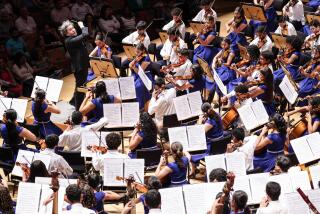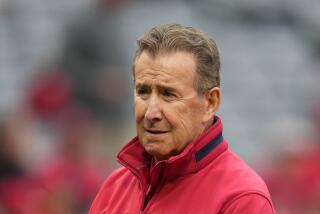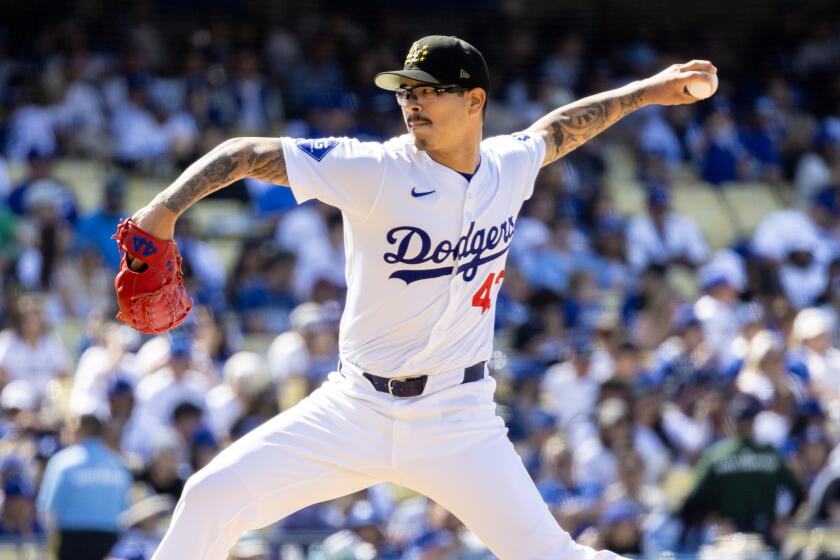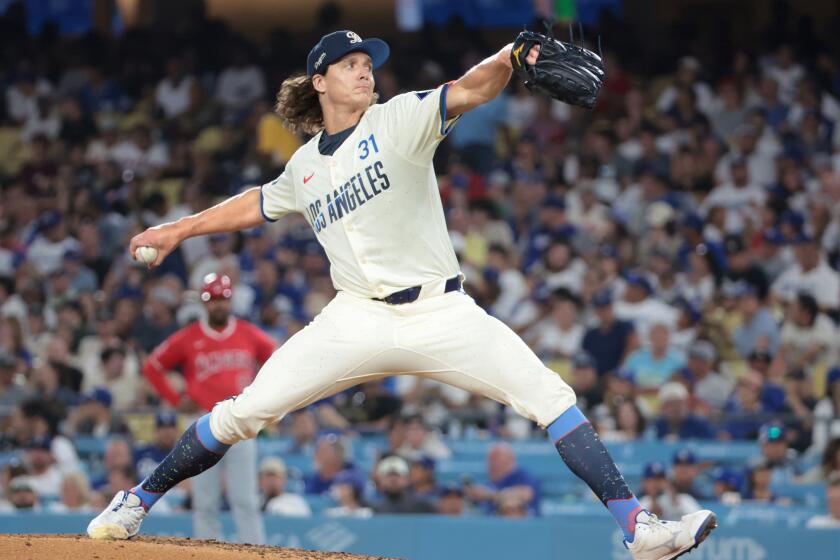Venezuelans on Angels and Dodgers worry about homeland
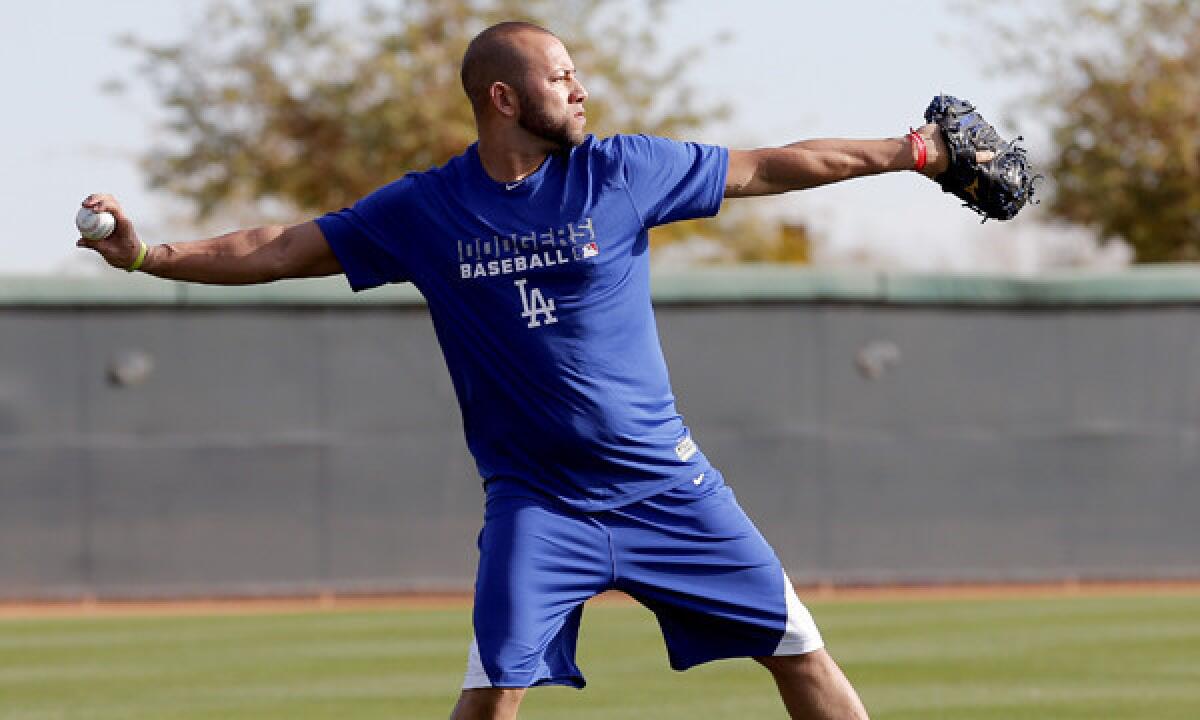
PHOENIX — Like many athletes, JC Boscan has a routine he follows each day.
“When I wake up,” the Dodgers catching prospect said, “the first thing I do is check my cell phone.”
The habit is all about family. While Boscan is in Arizona battling long odds to make the Dodgers major league roster, dozens of his relatives are in Venezuela, where a far more important fight is taking place.
Over the last month, tens of thousands of people have taken to the streets to demonstrate against the government of President Nicolas Maduro, protests where at least 18 have been killed and hundreds injured.
Though they are thousands of miles removed from the violence, it has been cause for concern in every big league training camp.
“I love my country, and it’s sad to see my brothers and my sisters killing each other,” said Angels catcher Yorvit Torrealba, one of 94 Venezuelans to play in the majors last season. “It’s hard for the guys here to focus and do their jobs because your mind is there sometimes, thinking about your family members.”
Those thoughts inspired dozens of Venezuelans, from two-time American League most valuable player Miguel Cabrera and former AL Cy Young Award winner Felix Hernandez to players buried deep on minor league depth charts, to go on social media and call for an end to the violence in their homeland.
“We do really care about our country,” Torrealba said. “If you have a problem with the government, try to work it out instead of taking to the streets.”
The crisis has helped unite Venezuelan players, some who had previously been divided by politics.
“Absolutely,” said Dodgers infielder Miguel Rojas, who sought out San Diego Padres infielder and fellow Venezuelan Alexis Amarista before a game last weekend. “Especially with the guys [from] near the capital, where it’s more dangerous and violent. We always keep in touch. We always communicate.”
Amarista’s situation is less complicated than those of non-roster players such as Boscan and Rojas. Amarista is all but certain of making the big league team this spring, so he will earn at least the Major League Baseball minimum of $500,000 this season. He not only knows where he will be based, but also can afford to bring family members with him. But the two Dodgers prospects have no idea where they’ll be playing or how much they’ll be paid, so their families are staying in Venezuela for now.
“It’s a very difficult time in Venezuela, and nobody knows what’s going to happen,” said Boscan who, like Rojas, left a large extended family behind. “At the moment my family is fine. They don’t go into the streets much because it’s really dangerous in the streets.
“Everywhere there’s problems.”
Boscan is from Maracaibo, Venezuela’s second-largest city, and he has been struggling to concentrate on baseball.
“Because I don’t know what’s happening it’s a little difficult,” he said. “But when I’m on the field, I don’t think about that. It’s worrying, but you can’t keep that in your mind because at that moment my priority is my work.”
Twitter: @kbaxter11
Twitter: @MikeDiGiovanna
More to Read
Are you a true-blue fan?
Get our Dodgers Dugout newsletter for insights, news and much more.
You may occasionally receive promotional content from the Los Angeles Times.
